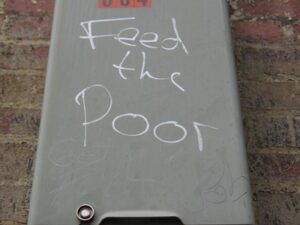The Center for Educational Performance and Information (CEPI) released new data regarding the completion rates for Michigan students enrolled in public universities and community colleges. Student success comes in a lot of forms, but the data show how likely students in these institutions are to graduate over defined periods of time.
A full-time student should be able to complete an associate degree in two years, or a bachelor’s degree in four. At a community college, most students attend part-time, so students who complete a degree often progress more slowly. However, a large percentage of students simply don’t graduate.
While graduation rates focus on student success, they also tell another story. They chronicle the students who started but didn’t finish a degree and didn’t transfer elsewhere. These students drop out for many reasons: family demands, work, money, time, transportation.
CEPI’s statistics for Washtenaw Community College student success show a few things. Looking at the 2014-15 cohort – the students who first enrolled in this academic year, 55.9% of these students completed a degree within six years. Although six years seems like a long time, most people who attend part-time also work at least part-time and often full-time.
Among this cohort, female students were more likely to complete within 6 years than male students were. In all study periods, the gap between all female and male students who completed a degree was 10% or greater.
Student success data also measures student failures
What’s also notable in the student success data is that in all study periods isn’t the fact that female African American students completed degree programs at twice the rate of male African American students. Rather, the real story is how low the completion rate was for African American males. Among the 2014-15 cohort, just 16% of African American male students completed a degree in two years. That compares to 28.8% of female African American students over two years.
By the sixth year, 48.7% of African American females who started their studies in 2014-15 had graduated. Just 31.8% of African American males had earned a degree in the same period. In other words, nearly 7 out of 10 Black males who started a program of study in 2014-15 at Washtenaw Community College never finished a degree. That’s kind of the opposite of student success.
I don’t think that’s the most appalling aspect of student success data, though. What’s most appalling to me is the amount of money and time the WCC administration invests in pursuit of “Other Revenue.” That would be things like the Health and Fitness Center, the “convention center” (renting out the Morris Lawrence Building), and the summer trades training programs. Instead of determining why 7 out of 10 young Black men who enroll at WCC never finish and then taking corrective action, the WCC administration is chasing cash. Instead of investing in the most marginalized members of our community, they’re drawing up plans to build a hotel. Rather than lifting these young men from poverty, they focus on converting the parking lots to retail space.
Refocus on student success
If the WCC administration focused itself on the core mission of the College, it would not need additional cash. The taxpayers, the State and the student body provide enough revenue to run WCC. (Provided, of course, that the money gets spent on actual mission-centric operations.) Instead, money gets diverted to pay the salaries of 10 Vice Presidents without any apparent positive effect on WCC’s enrollment or graduation rates. The condition of campus infrastructure declines annually, along with the maintenance budget. And since 2007, WCC has wasted millions propping up a high-cost, high-maintenance health club.
This isn’t why Washtenaw County voters authorized the creation of WCC. It’s not why we pay extraordinary taxes to support it either. And I bet the 70% of Black men who enroll but don’t finish their studies would probably agree.
Photo Credit: Washtenaw Community College, via Flickr





























